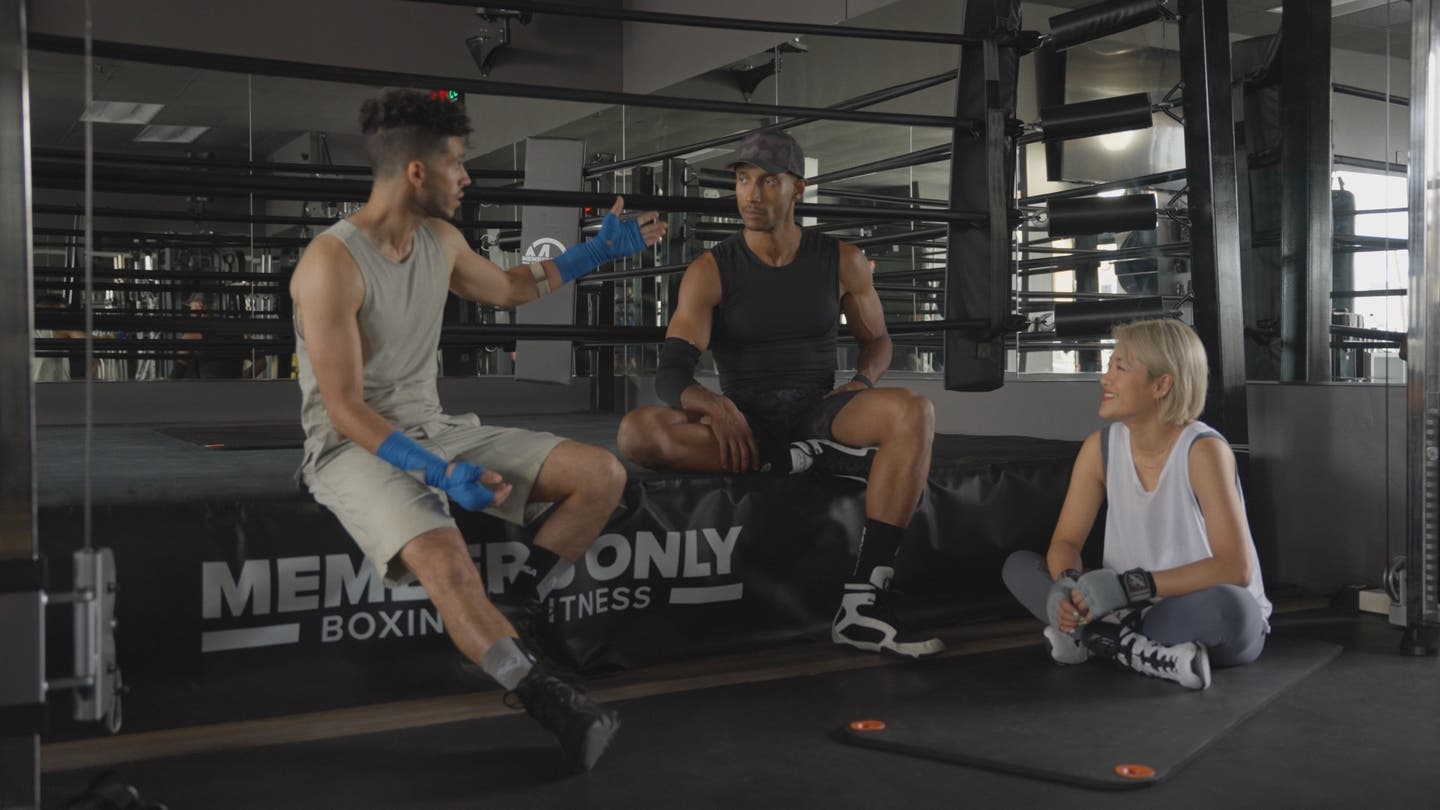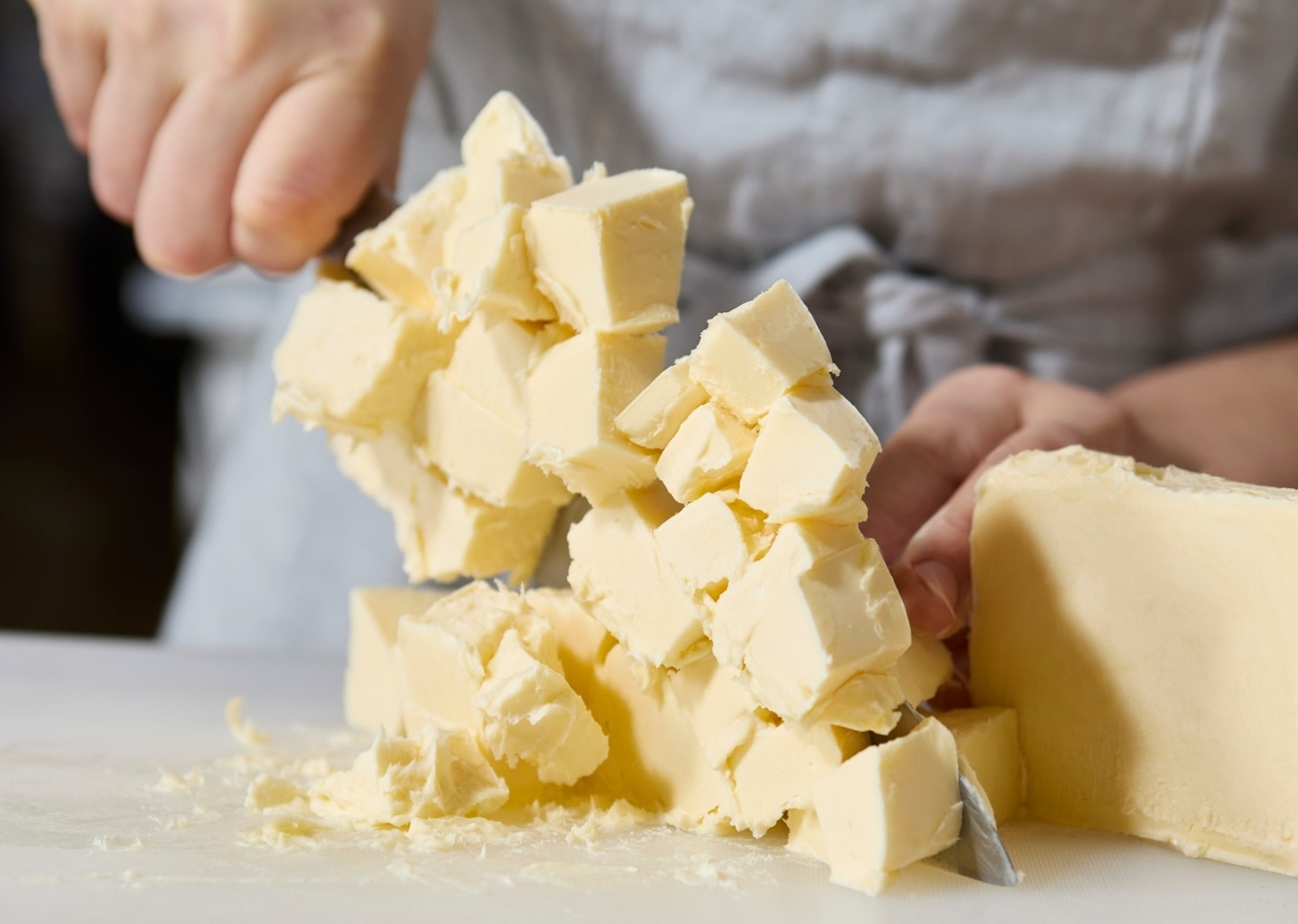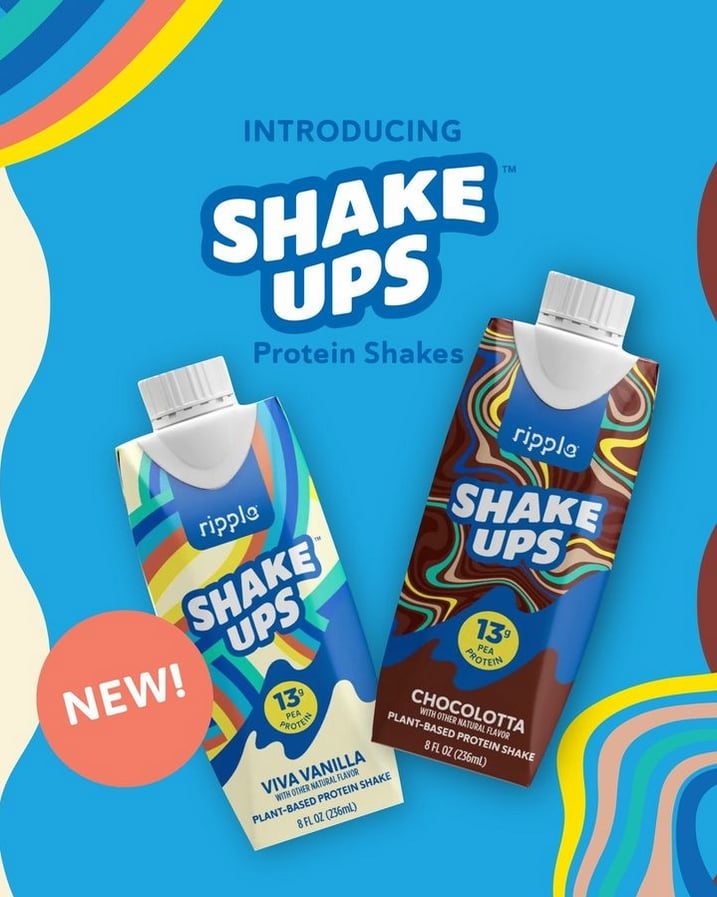From vegnews.com
This award-winning cheese brand is redefining dairy-free with its luxurious plant-based Camembert and butters—crafted the old-fashioned way: simply, slowly, and packed with bold, complex flavour. Now, UmYum is finally bringing its next-level creations to the US
But everything changed when he met his future wife, Katherine, who also grew up in South Africa, but was raised a vegetarian. “When Katherine and I got married, she used to make two different meals, and hers always looked better,” says Baz. Naturally, he made the switch to vegetarianism, too. But even then, cheese was everything. “I love cheese,” says Katherine. “I was dairy all the way.”
Fast forward to today, the couple is better known as the founders of UmYum. The plant-based brand based in Canada, where the Cordens now live, is known in the Pacific Northwest for its creative, high-end, revolutionary artisanal dairy-free cheeses and butters (and winner of a VegNews Best of Show Award at Expo West in 2024). Monroe, for example, is a camembert-style cheese described as “charming, subtle, earthy, sweet, and creamy.”
Soon, UmYum will hit shelves in California—its first US market. So, how did two cheese-lovers become dairy-free entrepreneurs? It all started with their daughter.
The journey to dairy-free cheese
When Katherine was nursing the couple’s young daughter, the new mom quickly discovered that eating dairy wasn’t an option. “[My daughter] would react really badly,” she recalls. “And I would react badly.” Katherine began trying dairy-free cheese, but at the time, all she could find were plant-based cream cheese spreads. These were fine, but they weren’t cutting it—literally.
“I wanted my knife to feel tension,” she says. “I wanted to cut into a piece of cheese and cut a slice. Not a spread. That’s what started this whole thing.”
That “whole thing” became UmYum. The company specializes in artisanal, dairy-free cheeses and is perhaps best known for its adventurous flavor combinations. The Coffee & Pepper cheese, for example, was inspired by Katherine’s fond memories of eating cheese and black pepper on toast with instant coffee. Mango Chutney & Saffron is a nod to the fragrant ingredients of Indian and Persian cuisines. UmYum also makes four varieties of artisanal butter in flavours like herb, slow-roasted garlic, and truffle.
UmYum has more products in the pipeline, too. Baz hints they might even be in a different category altogether. “We don’t have to stay in our lane,” he says.
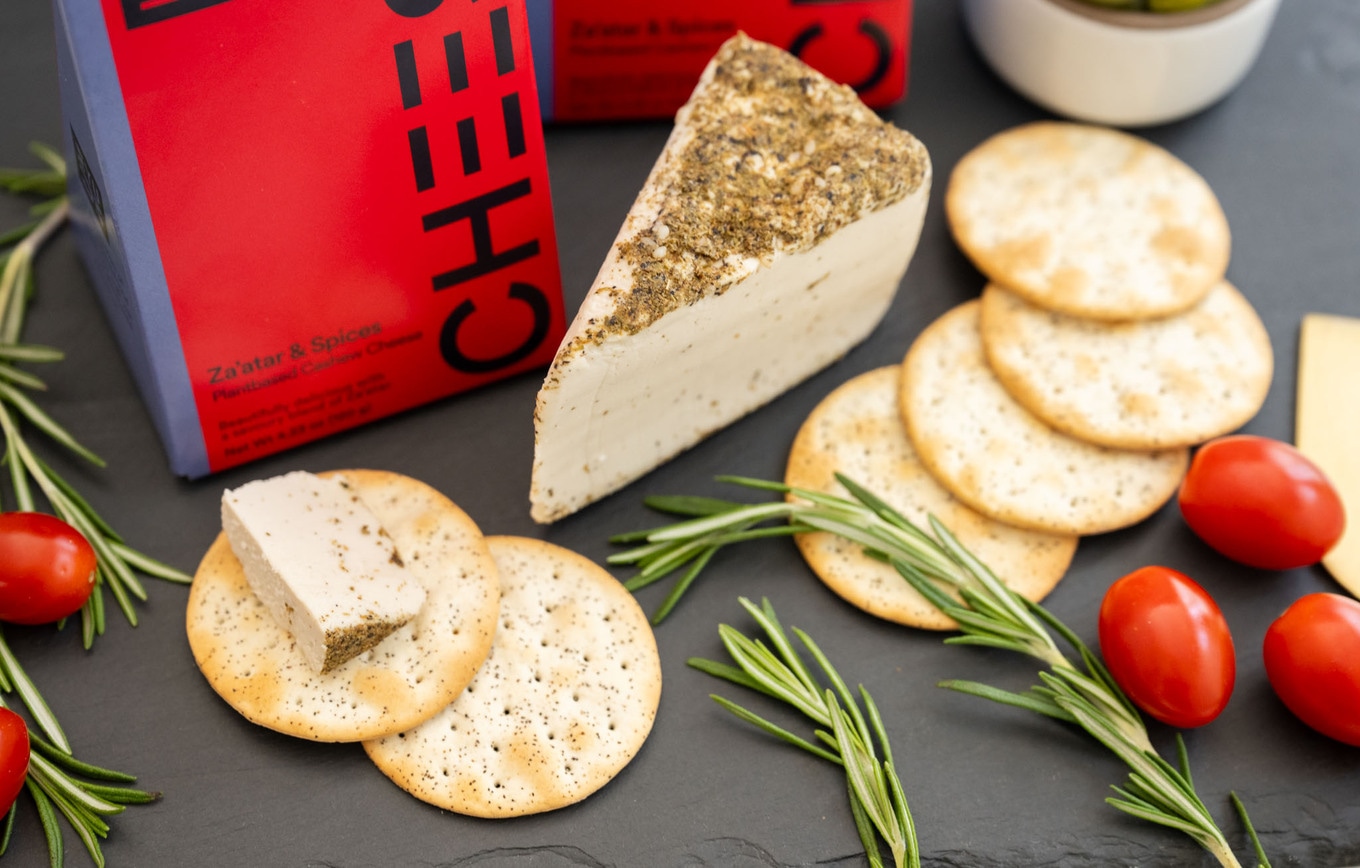 UmYum’s products appeal to everyone, from vegans to meat lovers. | VegNews
UmYum’s products appeal to everyone, from vegans to meat lovers. | VegNews
Now synonymous with high-quality, minimally processed plant-based products, UmYum has come a long way. But the journey wasn’t easy.
The Cordens lost their full-time jobs during the COVID-19 pandemic and were forced to pivot. At the time, they had been experimenting with a food dehydrator to fulfil Katherine’s postnatal cheese cravings. After a few “horrendous” attempts, they eventually created something truly delicious.
“We were just like, well, if we like it, other people might,” says Katherine.
Turns out, they were right. While the brand has certainly found love among vegans, its biggest fan base isn’t necessarily plant-based—it’s people who’ve gone dairy-free for reasons like allergies or intolerances.
“My brother-in-law is the biggest meat-and-potatoes eater ever,” Katherine says. “And one of his favourite things to do is take out our butter and put it on a steak on the barbecue.”
Redefining dairy and reconnecting people
UmYum is about to start distributing its popular cheeses to 16 stores in Southern California, including Bristol Farms, Besties, Follow Your Heart, and Organic Roots. It’s a milestone that is testament to just how good these products really are, and the significance is not lost on the Cordens.
“As South Africans who are immigrants to Canada, starting a company and shipping products to the US, it’s like dream stuff, right?” says Katherine. “We’ve created something from a kitchen in a country we weren’t born in, now exporting to one of the biggest markets in the world.”
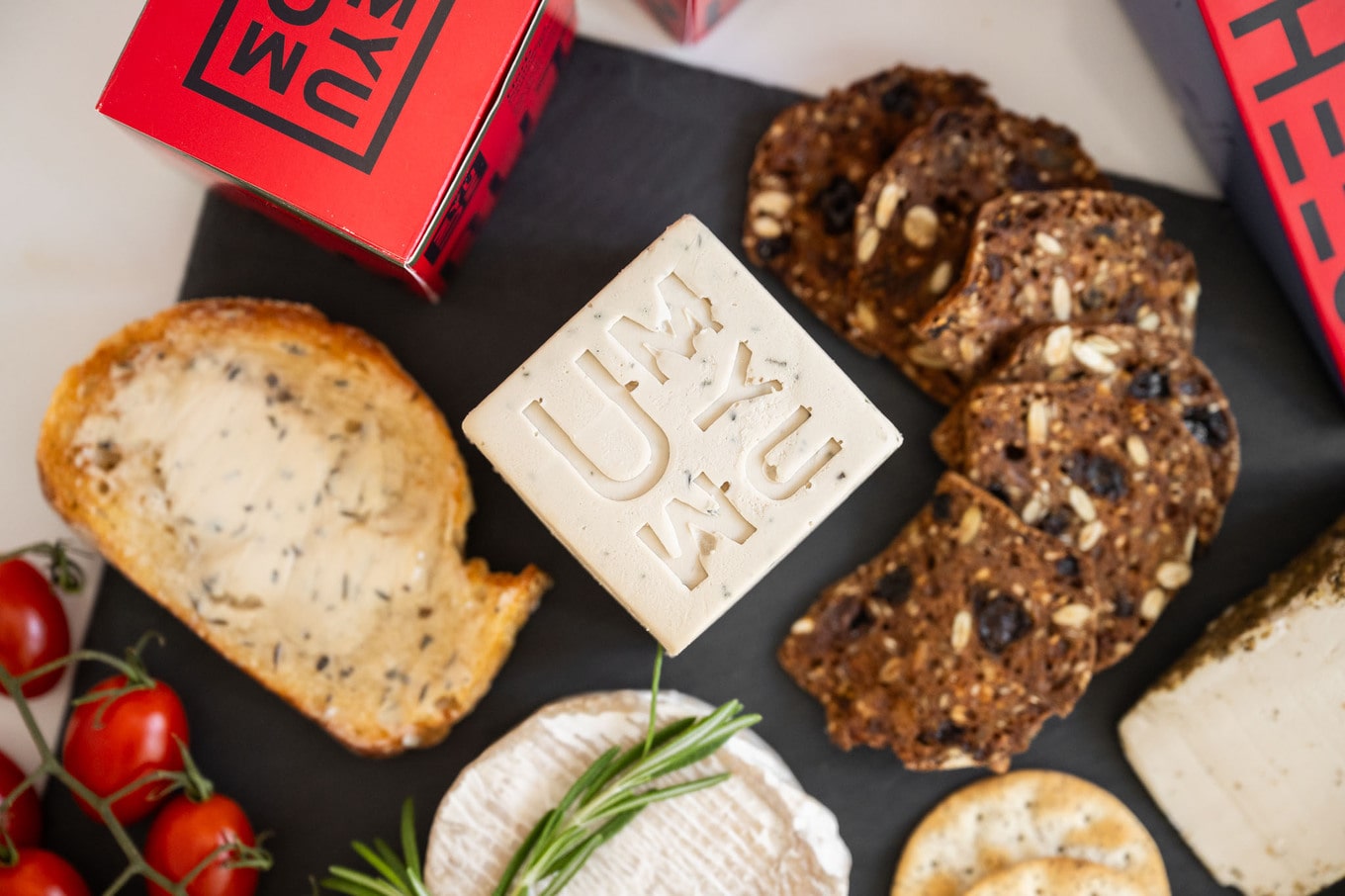 UmYum’s popular creamy butter is made with cashews. | VegNews
UmYum’s popular creamy butter is made with cashews. | VegNews
Some of the ingredients in their cheeses include organic cashew nuts, organic coconut oil, and lactic acid. UmYum’s cheeses are a world away from many of the ultra-processed dairy-free cheeses that currently line grocery store shelves.
“Baz always says that when people try to solve a problem, they keep adding and adding and adding,” explains Katherine. “But sometimes, it’s about removing. Whenever we’re creating something, we try and remove as much as possible to get it into a simpler state. I think having that approach means we’re removing the complexity, and it’s just coming out in the flavour.”
Staying focused on their mission also drives the Cordens forward; it’s not just about making delicious products, but making delicious products that bring people together over a great experience. In a time of division, especially in the food and wellness worlds where many have polarizing views, the Cordens believe this is more necessary than ever before.
“We really do believe that food has the power to change the world,” says Baz. “It really does. It’s a significant part of people’s lives. It isn’t just about introducing a product. It really is about creating experiences for people.” Katherine agrees. “There’s something about getting back to the roots of enjoying food together,” she says. “Trying to bridge the gap between the ‘them and us’ mentality a little bit.”
Soon, they’re bringing that attitude to California, where the Cordens have no doubt their products will seamlessly fit into the lifestyle. “California is great,” says Baz. “Sunshine outside, a glass of wine with friends, and a cheeseboard.” If that sounds like your dream afternoon, keep an eye out for UmYum hitting Southern California shelves.
Soon, the brand, which is already available in stores across Canada’s Pacific Northwest region, will expand to Northern California, too. And then to the rest of the US, of course. Keep up to date with UmYum’s journey here.
Thank you to UmYum for partnering with VegNews on this story.
https://vegnews.com/melty-gooey-and-the-cleanest-ingredients-meet-umyums-vegan-cheese

